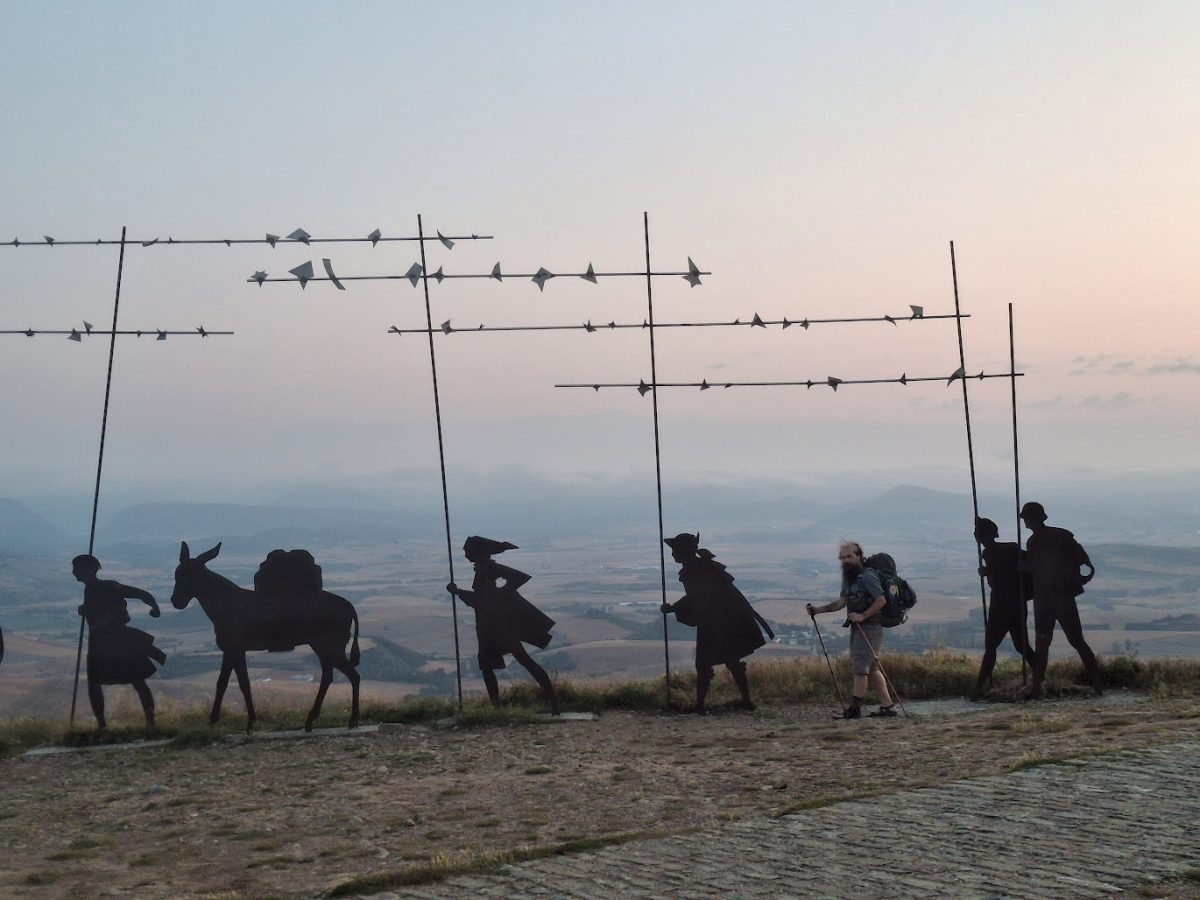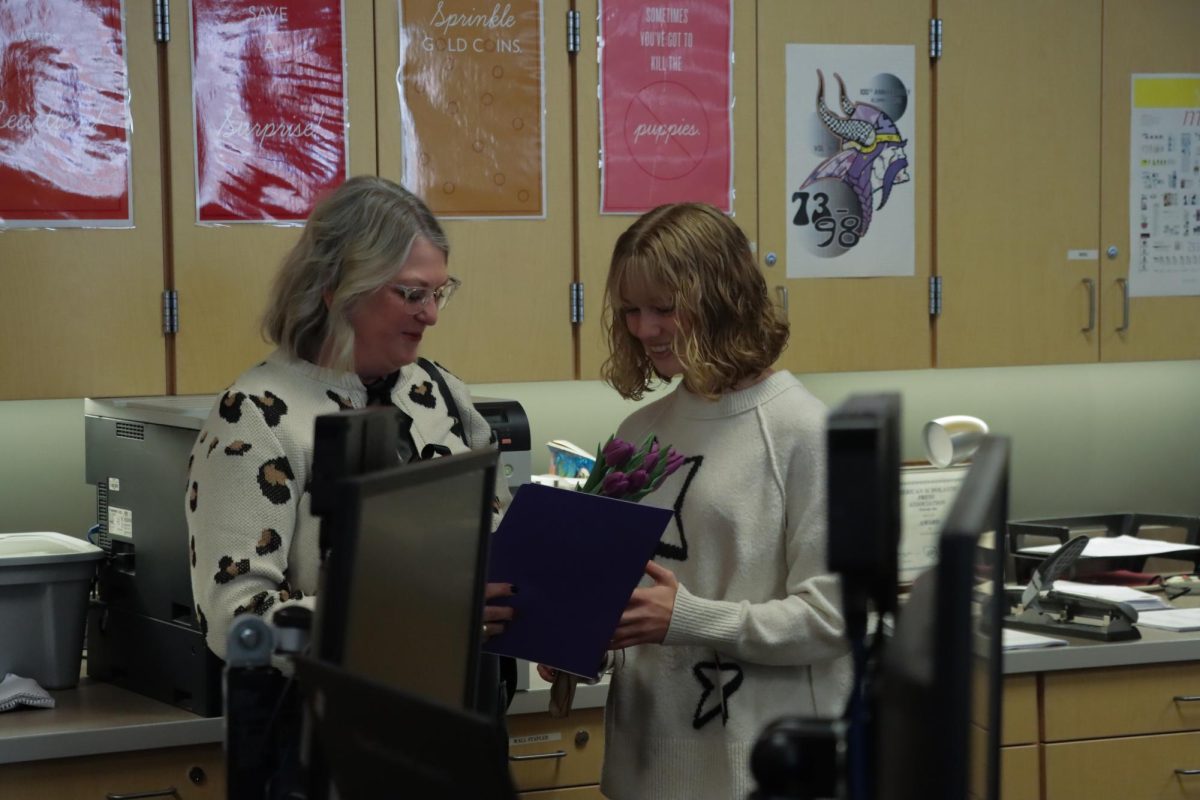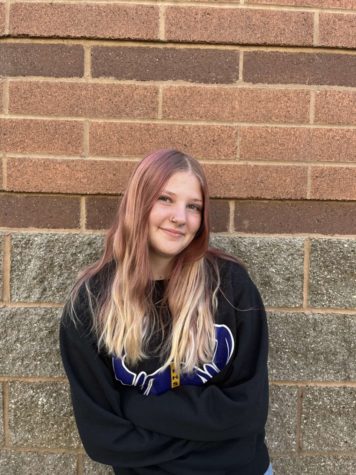Alumna Victoria Cartwright often volunteers at local hospitals and elementary schools to educate and raise funds for childhood cancer, more specifically, medulloblastoma, a form of brain cancer Cartwright herself struggled with, taking her vision and leaving her with lifelong side effects.
Cartwright kept up with the normality of childhood for nearly 10 years, actively participating in sports like softball and soccer.
“I could see [at birth] and I really liked playing sports and drawing, doing art. I attended a creative arts school in third and fourth grade,” Cartwright said. “It was then when I had a change in my health.”
The changes in Cartwright’s health took a toll on her everyday hobbies like sports, when the people closest to Cartwright realized her struggles.
“I started throwing up pretty much every morning and I would stop running because my head would be killing me. I couldn’t run anymore because the pain was killing me. My mom, my teacher, my softball and soccer coaches all noticed something,” Cartwright said.
Shortly after Cartwright’s 11th birthday, she had a doctor’s appointment to check in on why her health had taken such a toll.
“At first, [doctors] said I was Vitamin D deficient. It was the same after treatment though,” Cartwright said. “My mom took me back [to the doctors] and I just remember the doctor looking in my eyes, turning to my mom and saying, ‘You need to take her to the emergency room.’ From there, I learned I had a brain tumor, and that the tumor is cancerous. It was medulloblastoma, stage four cancer.”
After Cartwright’s diagnosis, she went into surgery, where 95% of the tumor was successfully removed.
“Two days later, [the doctors] decided I needed to have a shunt because my brain fluid wasn’t draining properly. I went in for that surgery, and I was able to see. When I woke up, I could not see anything at all,” Cartwright said. “I remember waking up, thinking my eyes just needed a second to readjust after the surgery, but after a minute, it didn’t stop. It just hit me. I remember my mom being in the room and I kept screaming that I couldn’t see.”
Living in Sacramento at the time, the doctors suggested Cartwright receive treatment in Seattle. At Seattle Children’s Hospital, Cartwright received chemo and radiation from head to spine, where her cancer cells were.
“I started treatment. I had eight rounds of chemo and eight rounds of radiation, which is the full amount the human body can withstand,” Cartwright said.
Responding to chemo, Cartwright beat cancer and ended treatment early.
Vanessa Cartwright, Victoria’s mother, shares her role throughout the treatment and the struggles it came with.
“As a parent, you having to physically hold your child down so doctors can access a port to give her chemo that is supposed to save her life is hard,” Vanessa Cartwright said. “And then there is blood draws, feeding tubes, a lot of icky things that come with childhood cancer treatment.”
Despite beating the war that is cancer, Cartwright still faces struggles because of her time in hospital rooms.
“Even though I’ve been completely blind for, ten, almost eleven years now, it’s still a really hard concept to grasp, that I haven’t been able to see for that long. I also have PTSD. I have these episodes where I get flashbacks from treatment. I get disillusionment and displacement, where it feels like I am in that scenario, and not in the present moment,” Cartwright said. “I’ve gone to physical therapy and occupational therapy to try to restore my balance, but it will never be where it once was, because of where the tumor was located.”
Cartwright shares a piece of advice for those struggling.
“Don’t let whatever challenges you or is trying to stop you– whether it be a disability, an illness, a family issue, a personal issue, anything at all, don’t let it keep you from reaching your goals. Don’t give [the struggle] the privilege of winning,” Cartwright said.



